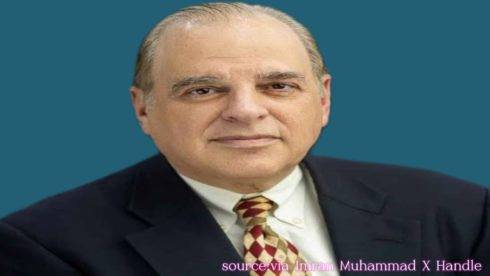Robert Dickerman: Revelation of Substantial Monthly Subsidy Expenditure
Pinnacle Oil and Gas Limited’s Managing Director, Mr. Robert Dickerman, disclosed at the Nigeria International Energy Summit that Nigeria is expending a staggering N1 trillion monthly on petrol subsidies, despite attempts at deregulation. This revelation sheds light on the persistent financial burden that subsidizing petrol imposes on the nation’s economy.
The disclosure underscores the significant financial strain imposed on Nigeria’s budget, as essential programs struggle to secure adequate funding amidst the colossal subsidy expenditure. Moreover, Mr. Dickerman highlighted the adverse impact of this subsidy on neighboring countries, as the low cost of gasoline in Nigeria incentivizes smuggling activities, further exacerbating revenue losses for the nation.
Robert Dickerman, Implications of Subsidy for Market Dynamics
The revelation by Pinnacle Oil and Gas Limited’s CEO elucidates the intricate market dynamics influenced by the persistent subsidy on petrol. Mr. Dickerman emphasized the distortionary effects of the subsidy, particularly on price competitiveness and market fairness.
The artificially low cost of gasoline in Nigeria, attributable to the subsidy, not only encourages smuggling activities but also undermines the viability of competitive markets within the downstream oil and gas sector. Furthermore, the disparity in petrol prices between Nigeria and neighboring countries creates economic imbalances, as Nigeria inadvertently subsidizes the fuel consumption of its neighbors, thereby exacerbating the financial strain on its budgetary allocations.
Robert Dickerman Unveils Challenges to Fiscal Sustainability
The revelation of Nigeria’s substantial monthly expenditure on petrol subsidies presents formidable challenges to the nation’s fiscal sustainability. Mr. Dickerman’s disclosure underscores the detrimental impact of the subsidy on critical budgetary allocations, impeding the effective implementation of essential programs and services.
The persistent reliance on subsidies to maintain artificially low petrol prices not only strains Nigeria’s fiscal resources but also hampers efforts to promote fiscal discipline and transparency. Moreover, the subsidy expenditure perpetuates inefficiencies within the downstream oil and gas sector, hindering the development of a sustainable and competitive market environment.
Robert Dickerman: Calls for Policy Reform and Market Enforcement
In light of the significant subsidy expenditure highlighted by Pinnacle Oil and Gas Limited’s CEO, calls for comprehensive policy reform and market enforcement have gained prominence. Mr. Dickerman emphasized the imperative of implementing measures to address corruption, enhance market competitiveness, and enforce fairness in market transactions.
The need for a conservative fiscal policy framework, coupled with stringent regulatory enforcement mechanisms, is paramount to mitigate the adverse effects of subsidy dependence on Nigeria’s economy. Furthermore, fostering collaboration between government agencies, foreign investors, and lenders is essential to formulate sustainable solutions that promote fiscal stability and market efficiency within the downstream oil and gas sector.
Robert Dickerman: Addressing Smuggling and Revenue Losses
The revelation of Nigeria’s substantial petrol subsidy expenditure underscores the urgent need to address smuggling activities and revenue losses stemming from artificially low fuel prices. Mr. Dickerman highlighted the detrimental impact of smuggling on Nigeria’s economy, as it not only deprives the nation of revenue but also exacerbates fiscal strains.
Addressing the root causes of smuggling necessitates a multifaceted approach, encompassing enhanced border security measures, regulatory enforcement, and international cooperation. Moreover, implementing strategies to promote domestic refining capacity can reduce Nigeria’s reliance on imported petrol, mitigating the vulnerability to international market fluctuations and smuggling activities.
Robert Dickerman Unveils Pathways to Sustainable Energy Pricing
In light of the persistent challenges associated with petrol subsidies, exploring pathways to sustainable energy pricing has become imperative for Nigeria’s economic resilience and energy security. Mr. Dickerman emphasized the need for comprehensive policy reforms that prioritize market-driven pricing mechanisms and promote investment in domestic refining infrastructure.
Embracing market-based solutions, such as liberalizing the downstream oil and gas sector and fostering competition, can facilitate the transition towards sustainable energy pricing models. Additionally, incentivizing investments in renewable energy sources and enhancing energy efficiency measures can diversify Nigeria’s energy portfolio, reducing reliance on petrol subsidies and promoting long-term economic sustainability.
Table of Contents
Discover more from OGM News NG
Subscribe to get the latest posts sent to your email.














